Chinese Consumerist Party
- Chris and Leah

- Apr 26, 2019
- 8 min read
Updated: Sep 9, 2019
Our time in the world’s most populous country was filled with wonder, confusion, hunger, exhilaration, struggle, admiration, mystery, pollution, and some good laughs. Arriving from India, we were shocked by the intense differences between the two countries. Suddenly there were rules, very basic sanitation standards, hi-speed trains, modern infrastructure, and security cameras everywhere, and a reliable electric grid to support them. We were truly bewildered by the number of constructions cranes and identical high-rise buildings towering in the hazy skies of what seemed like ghost cities built along the hi-speed railway.

For being well-traveled adults, we found ourselves feeling like helpless 3 year-olds at least five times a week in China. While some things were super easy - like figuring out the world's busiest metro system in Beijing, spotting Chris in a sea of Chinese people, and shopping for food oddities at the mall - traveling in China was mostly challenging and strange every single day. We have never in our lives relied more on Google Translate to communicate, but even then, conversation was usually full of confusion due to the verbal language tonal shifts.
(We did learn from this guy though that there's an app that can scan a Chinese menu and convert the menu items into English right before you eyes! Unfortunately most of the signs and menus that we tried to scan afterwards were not as receptive to the app.
When Leah ask about the flavor of the traditional Osmanthus cake, we got this response:
"Petting a book is a kind of crispy high point. He is not a soft thing to get along with." We decided to just buy the box of weird cake items and move on.
Sadly, most people were not as helpful or friendly towards us. We were actually waved away from numerous train and bus ticket windows because it was just too inconvenient to bother helping foreigners. This attitude is not something we have ever experienced while traveling, at least not to the degree we experienced it in most parts of China.
It's hard to sum up China in a blog, but many stereotypes about China were firmly validated after spending a month engulfed in this enormous country:
People – There are literally billions of them. The cities we visited, Beijing (22 million), Xi'an (7 million), Kunming (6 million), Haikou (3 million) and Guilin (3 million), would all be among the largest cities in the U.S. In China, a city with less than 10 million inhabitants is barely a blip on the map. If 1% of Chinese society enters the middle class-whatever that means-in 2019, that means 15 million more people will be buying that sequined jean jacket with a penguin on it, following the red flag waving tour guide in Times Square, and fueling the need for a new coal plant every week. That’s every single person in the state of Illinois plus metro-Milwaukee doing all those things, next year, for the first time. Wait a decade until the Chinese population is flat and India becomes the most populous nation in the world. Or don’t and start building yourself an off -grid, self-sufficient, climate-change-resilient escape in the Northwest Territories right now. Did you hear the news? China has a two child policy now...
Security – The detailed tabs the Chinese government is keeping were apparent in almost everything around us. Cameras and CCTV are omnipresent, from one step outside our hotel room to the craggy peaks atop mountain hiking trails. Not exaggerating one bit.
Consider the train, for example - foreign passengers must show valid passport and ticket to the security personnel who may photograph your face (no glasses, no smiling), your ticket, and your passport, before allowing you to enter the platform area. Then, you and your luggage must pass a scanner/metal detector/security person with beeping wand triple threat.
We learned the hard way to always reserve train tickets well in advance, because 100 million people might also decide that same day that they want to go to the same place you are going. One day, we shared a 3-hour taxi with some other travelers to reach the train station more quickly. When we left there were over 100 seats available on the 2pm train, and since the price of the train ticket was less than the price of the online processing fee, we all decided to wait to buy the tickets when we arrived. (The website also declined our credit cards and email address too...so we really didn't have a choice). When we got to the train station, every single ticket was sold out for the entire day. We ended up taking a bus that was slower, older, and more expensive.
The stupidest part about that story is that even if you buy your train tickets online, you can’t just show the purchased ticket on your phone when you get to the station, you must pick-up a hard copy from the ticket office and prove your identity by waiting in the 100 million person line anyway.
And it is not just foreigners who seem perplexed by the whole process. It seemed to be a new experience for many people who may have been more accustomed to getting around by bus or electric pick-up with boards over the wheel wells for seats. All of a sudden, there’s a 150mph bullet train that just popped up in your backyard and you have to scan your State ID to climb aboard.
Development
The scale of development is not just another familiar stereotype of modern Chinese society. It is a seriously true thing. In the ‘boom days’ of the 2000s ‘rampant’ real estate development in Portland looked like a few new 2 or 3 story apartment buildings with 6 or 8 units each. In China, if you are going to put up one 20-story apartment building with 200 units, you might as well put up 10 and make a neighborhood. Soon enough, it’ll have to fill up with people as opportunities in rural communities disappear.
It's impossible not to notice, new buildings, roads, power plants, hydro electric dams, highways, and rail lines, all being constructed at breakneck speed. On our first hi-speed train ride, headed to Kunming, we literally saw two coal plants and a nuclear plant out the window at the same time. It seems that a remote village, currently only connected to its provincial capital by dirt road and slow train, will have an 8-lane highway and a high-speed rail connection 3-5 years from now.
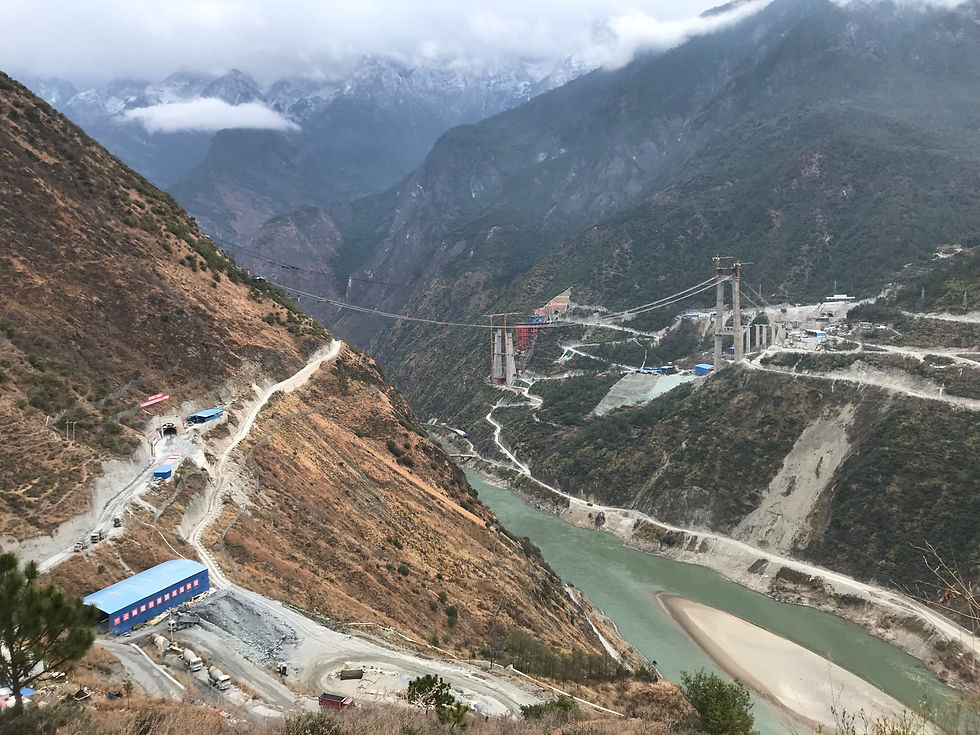
Of course, massive infrastructure development has significant negative effects- environmental destruction, displacement of people and wildlife, and shifts in cultures. Nonetheless, these 1.5 billion people need to survive somewhere, so why not have it be a little better for them? Through the jobs created in these projects and the improved access to services, China seems to be doing more to lift the poorest among its population out of extreme poverty, improve health and sanitation, and also show some concern for long-term environmental effects of its giant population (electric and gas vehicles, recycling, campaigns to conserve water, etc.), than anywhere else in the world.
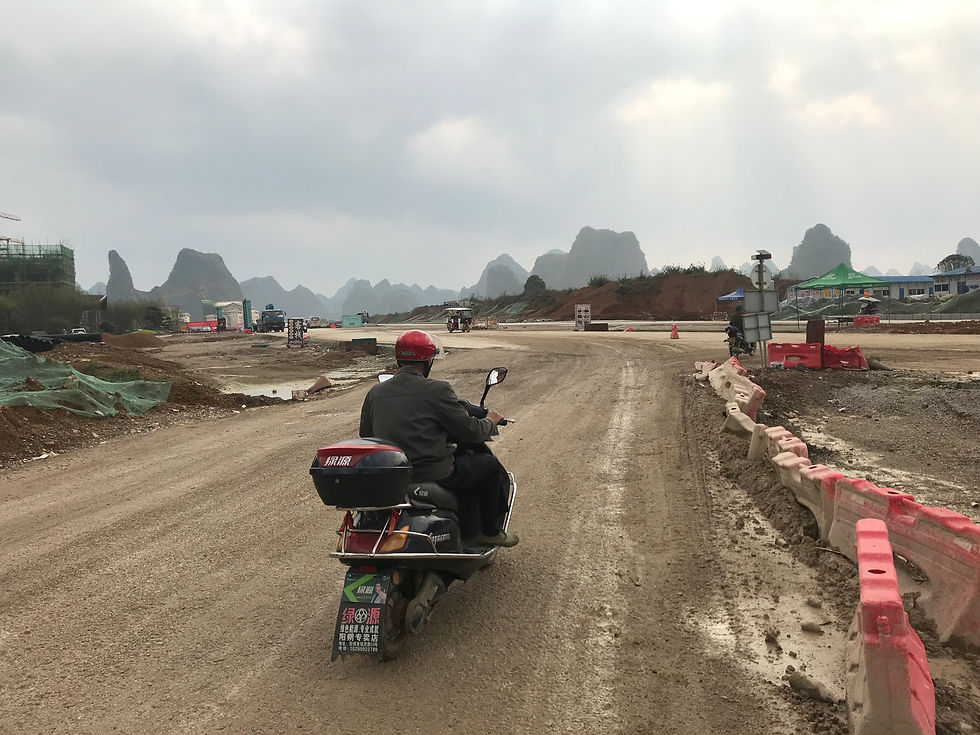
Nifty Inventions & Hi-Technology - China uses technology for most aspects of every day living. We had to come to China to see personal media screens at each airport bathroom sink! These offered inspirational quotes about friendship and staying healthy, as well as how to stay safe on the airport train. Then there were great little inventions that we have never seen before - like cute little jackets and mittens for your scooter.
Photography - Think of a teenager you know who solely documents their life on social media and can't do anything or go anywhere without taking a selfie or photo of their experiences. That is what almost every Chinese domestic tourist (and every other tourist!) is doing in China, everywhere, at every moment. From friends, young and old, sweetheart couples, to large tour groups, everyone is dressing in selfie ready outfits trying to get the perfect selfie or sunrise shot. It was especially evident to us since we were usually among the few westerners in a sea of Chinese people with their cameras. On many occasions, we were even solicited to be in their photos or realized after the fact that we had been filmed or photographed without our knowledge.


Spitting – We’ve seen it some, but overall, much less spitting than expected. In general, civic cleanliness seems to be a new priority in society based on the friendly reminders to not spit on the metro. Or a 'kindly reminder' to flush the toilet.
Hello Kitty, Bubble Gum Music, ping pong, weird food + drinks, and overall strangeness – All for real, all everywhere. Dry Cake with 'carefully-selected quality materials plus elaborate processing bring you and your family the warmth and sweetness' anyone? Or how about some street flavored cabbage? That wasn't even disturbing after seeing some of the food market 'edibles' - like fried larvae, meal worms, crunchy cicadas, duck eggs galore, gelatinous soup with floating space particles, balls of colorful goo, eels in buckets, freshly plucked chickens and yes even dogs :( The restaurants without an actual menu were our fav- just point to the the hanging meat of your liking and the veggies to accompany it and voila. Beyond food, grown ups were into stuff that would make a five year old go nuts- like adult balloons to cheer on the local band playing, singing and dancing bears, and cute little animal tea pets which all the tea shops owned.

Shopping and Malls – Yup they love these too. As a place opened relatively recently to the bright lights and warm fuzzy feelings of buying stuff, they haven’t messed around with dipping their toes in. There’s so much stuff you can buy and so many people willing to buy it. Just like at home, name brands seem especially important, and if you can represent some American or European brand or slogan that makes no sense but is in English, all the better.
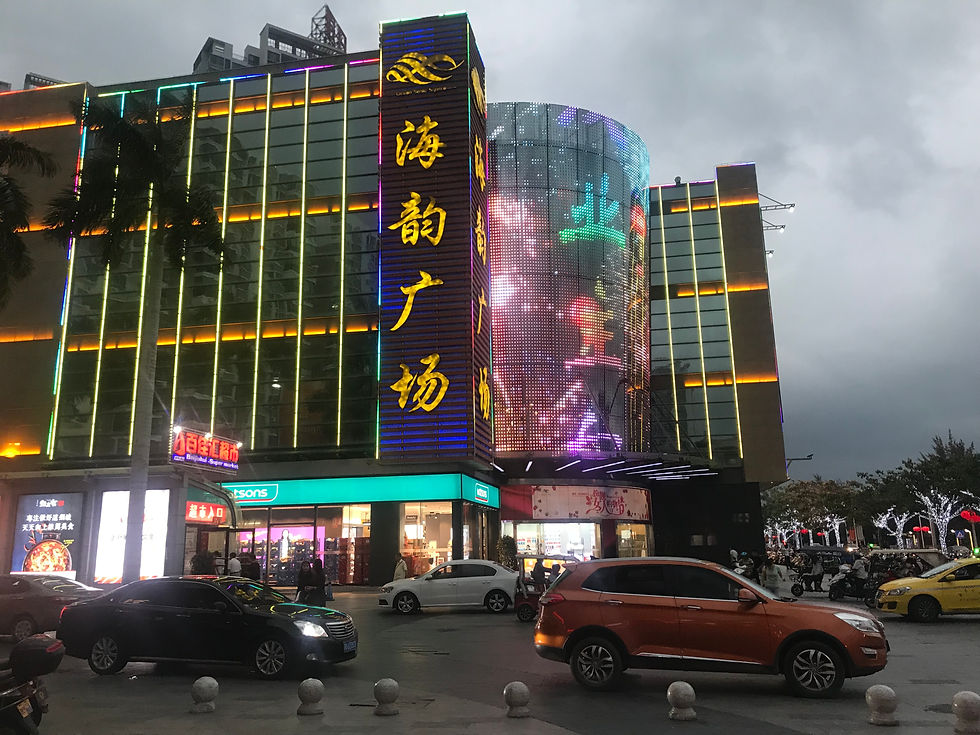
One day, our Airbnb host took us on a tour of the highest mountain in Hainan and a quick stop off at some hot springs before suggesting that we go to the mall for dinner on the way home. We literally got dropped off at the mall like a couple teenagers with a meeting time and place by the McDonald's across the street. The mall was 5 stories tall and you could live your entire life inside. There are good restaurants, multiple places to leave your kids for babysitting-an arcade targeting kids under 6, and 2 Leaps and Bounds/Chuck E Cheese without the creepy animatronic show-a movie theater, enormous supermarket, and dozens of clothing stores. Being people who rarely find ourselves at the mall, we were absolutely exhausted by 7pm.
Tourism – Tourism in China is setup for big tour groups in a big way. They travel in large groups to large attractions, that have large entrance fees, and many shopping options once inside. Insider China travel tip we learned from a French guy: “Do the opposite of what they do. If they walk one way, you walk the other”.

Lijiang, Yunnan, our first stop in China is the poster child for this sort of arrangement. Its ancient town hosts over 8 million visitors each year! That’s something like 22,000 tourists per day, everyday. The primary activity on the streets of Lijiang, Dali, or any of the Ancient Towns, we discovered, is shopping. There are endless shops, but really only a few options – silver jewelry, rose petal filled pastries, cow horn combs, mixed fruit bowls, African drums (The Yunnanese are hooked on Djembes), meat on a stick, women’s fashions, yak products, and tea, dozens of copies of each business appear in alley after alley, ancient town after ancient town.
If you're even a little tired from reading this, then you're getting the idea. China was endlessly interesting, so different from what is known or familiar to us. It was also endlessly frustrating, for example, the computer wouldn't connect to the Chinese internet, so this blog, written weeks ago, is just making it to you now. It was also shocking to see modernity crash so hard into antiquity in one place. In some ways, China is better developed, more modern, and more efficient than anything in the West. However, we're interested to see how incorporating the rest of the 800 million rural population into that dream will play out. No matter what the result, we'll be glad to observe it at a distance.




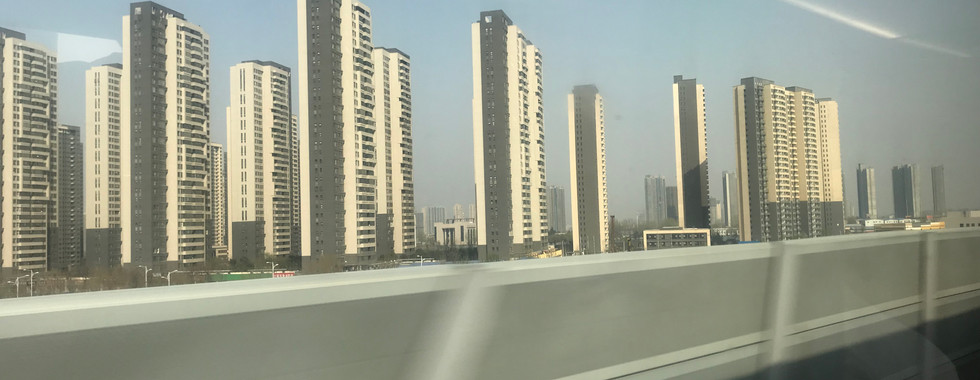



















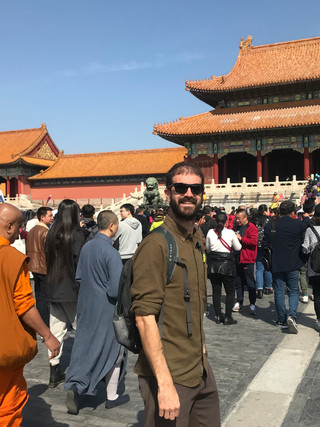

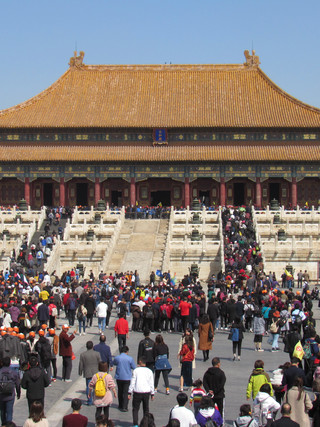



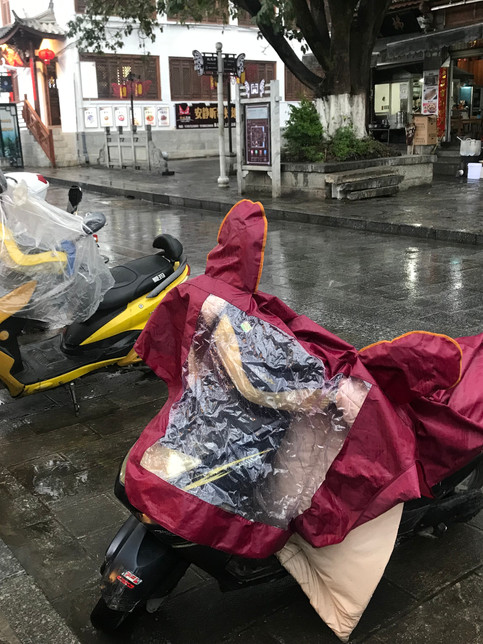






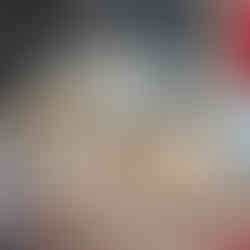



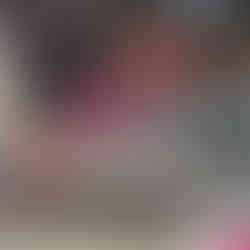




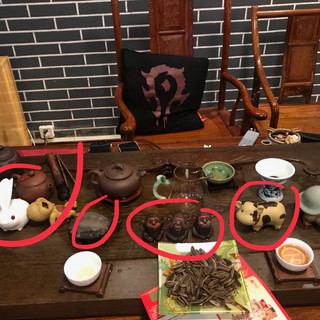
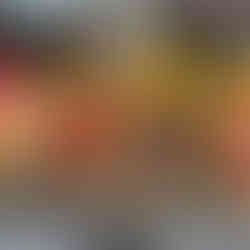


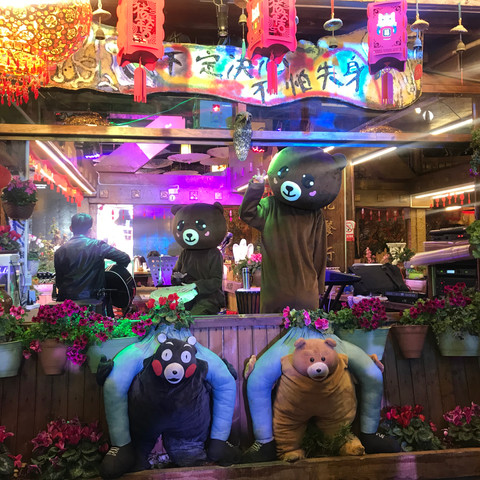






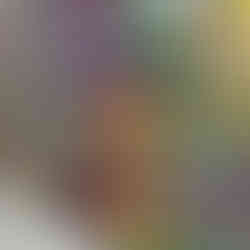




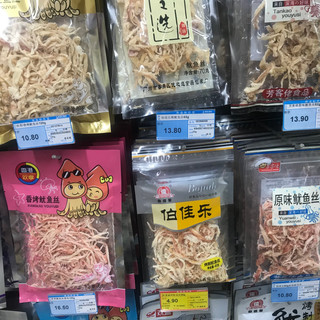



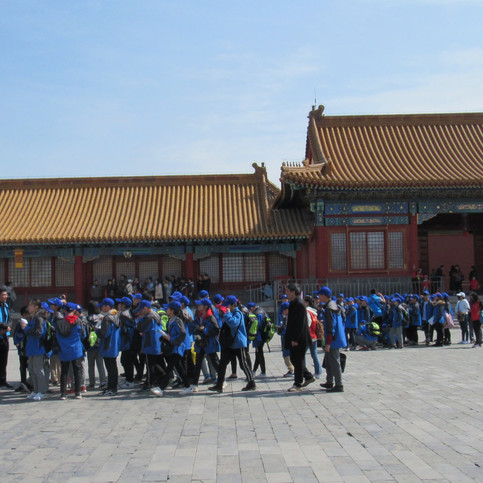

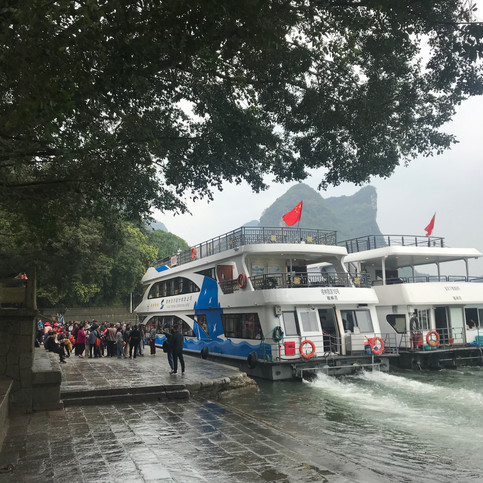


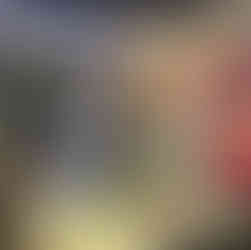






Interesting read! Hope you are enjoying Spain.